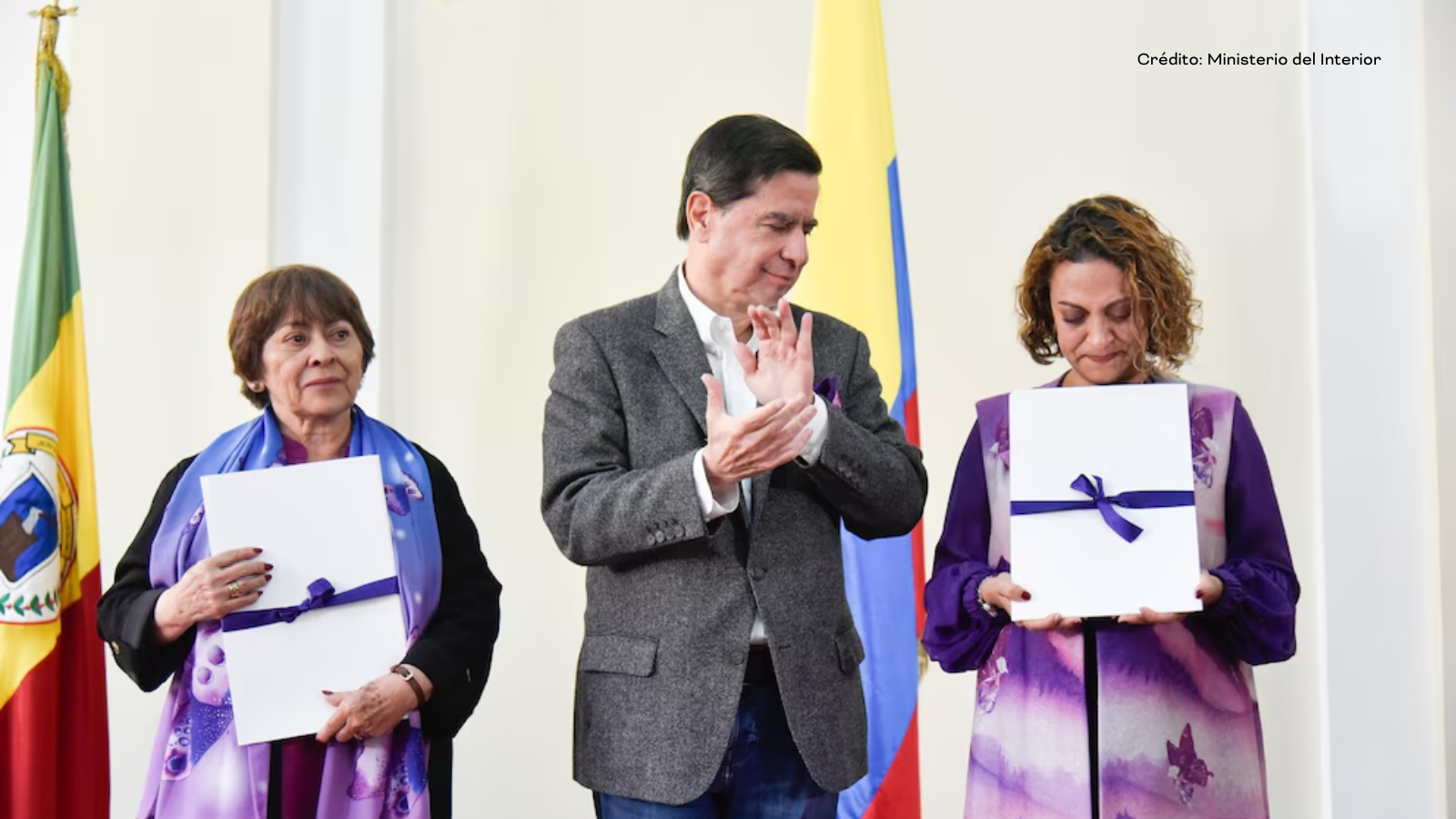






Bogotá, Colombia; September 9, 2024 – In a historic move, the Colombian government introduced Law 2358, establishing the creation of the “No Es Hora de Callar” Fund. This fund is aimed at financing programs for the prevention, protection, and assistance of women journalists and communicators who have been victims of gender-based violence while performing their work. The creation of this fund is one of the reparative measures ordered by the Inter-American Court of Human Rights (IACHR) in its ruling in the case of journalist Jineth Bedoya Lima vs. Colombia. In 2000, Bedoya was the target of threats, kidnapped at the gates of La Modelo prison, tortured, and sexually assaulted as retaliation for her journalistic work.
The creation of the fund marks a historic milestone in Bedoya’s relentless fight and for the country, as it is the first time the Colombian government has implemented concrete, funded actions to guarantee the human rights of women journalists and communicators. These women continue to face a hostile environment while carrying out their duties. The fund will provide psychological, legal, and financial support to journalists who are victims of gender-based violence due to their profession, while also strengthening public policies aimed at protecting and supporting them. Additionally, the fund will support research to monitor and respond effectively to the forms of gender-based violence that affect journalists in Colombia, providing key information to create more effective intervention strategies.
The law’s presentation event was attended by high-ranking government officials, including the Ministers of the Interior, Juan Fernando Cristo; Culture, Juan David Correa; Justice, Ángela María Buitrago; and Foreign Affairs, Luis Gilberto Murillo, alongside journalists such as Jineth Bedoya, Claudia Julieta Duque, Dora Muñoz, Carmen Rosa Pabón, Lina Robles, and Ana Cristina Restrepo.
Jineth Bedoya, a renowned journalist and human rights defender, was kidnapped, tortured, and sexually assaulted in 2000 while investigating issues related to the armed conflict. At the time of the attack, she was conducting a journalistic investigation into human rights violations inside La Modelo prison. Her abduction and torture were intended to prevent her investigation from moving forward and to silence the media, denying the Colombian public access to crucial information. Bedoya’s case is emblematic of the severe challenges journalists in Colombia face, particularly those reporting on human rights violations and state corruption. It also reflects a broader context of impunity, threats, and systematic violence against journalists in the country. Over the years, Bedoya received numerous death threats, and her case remained in impunity for more than two decades, with no proper investigation of those responsible.
The Center for Justice and International Law (CEJIL) and the Foundation for Press Freedom (FLIP), as Bedoya’s legal representatives in the case, succeeded in having the IACHR order the Colombian state to implement several reparative measures, including the creation of this fund. In her speech during the enactment of the law, Bedoya said, “Today, a dream born 15 years ago has become a state policy.”
This fund not only represents a milestone in the fight against gender-based violence but also a significant step forward in protecting the rights of women journalists, who continue to face constant risks in their work.
Help us continue this critical and urgent work with a donation!
DONATE NOW